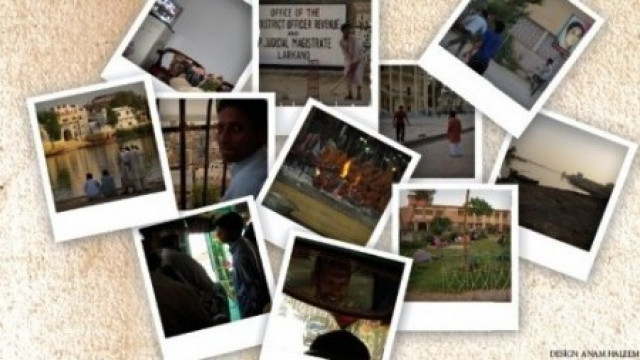Shikwa and Jawab-i Shikwa - our complaints unite us

There is a great myth that Pakistanis are united by cricket. Around Larkana and Sukkur I see more volleyball games than cricket matches.
Even Islam fails to “unite” this nation. In a city of one million you will find one million different paths to God. What unites this nation is its complaint. Its want. What makes rich and poor and North and South come together are the issues of water, electricity and the increasingly unmeetable expenses of life. I give Mr Cheeks this name because he has full, round cheeks.
They express heartiness and kindness and a sense of duty. The cheeks do not lie. Mr Cheeks has all these qualities. He looks after me like a returning cousin and if I have not written about this, it is because the fact is well known. Pakistanis are world-class hosts. I give The Graduate his grand name because he is indeed a graduate. He is 32 years old and is ambiguous when I ask him what he does for a living. I assume he gets by on work here and there. He has a worldly bearing and a comprehending gaze. I want to know his story and his resentments. I coax him. I prod. He opens up. “I am a graduate. I have tried to get a government job for ten years. I do not have much time left because they do not take people after 35,” he explains. I see The Graduate as a ticking time bomb with three years left on the clock.
“Why can you not get a job?” “Because every time I get close to some new minister a civil servant comes in and gives a position to his contact. I have no contacts. No powerful ones like that.” “There is corruption?” He shoots me a look that says, ‘If you are going to say such stupidly obvious things you may as well take the next bus back to Karachi.’ We are having dinner and from the road I hear a man crying out in rapidfire stacatto, “Karachi. Karachi... Karachi...Karaccchhi!” A bus would be leaving soon for home but I have no plans to take it. The Graduate tells me that posts have not been given out on merit since Musharraf left. Since then it has been all about who you know and who knew you. Who owed whom. The job market is the fiefdom of sons and nephews and hangers-on.
When I ask him if he would have preferred life under the military, he says that dictatorship is not the answer. I notice that he is now sprinkling his sentences with more English words. “What about the private sector?” “It’s just as bad for someone like me,” he replies. “I have tried for lots of places in Karachi. One time I applied to a bank. I had a very good interview and test. But there were already four Sindhis in the department. There were two Mohajirs. This included the head of the department. The Mohajirs decided that another Sindhi would make it too imbalanced and we would take over. So they gave the job to a Mohajir. Not me.”
We are on the upper floor with a view to the street below. I see two men with long beards realise I hadn’t seen any of them around before. “How come you don’t see men with big religious beards here?” The Graduate replies: “This is not Karachi. You don’t get Pathans.” “Sindhis can also have beards like that.” “Yes, but we don’t.” We carry on eating. There are shami kebabs made with lentils and potatoes and chicken tikka of such flavour that it could only have been marinated in heaven.
The writer can be reached at m.imran.yusuf@gmail.com



















COMMENTS
Comments are moderated and generally will be posted if they are on-topic and not abusive.
For more information, please see our Comments FAQ